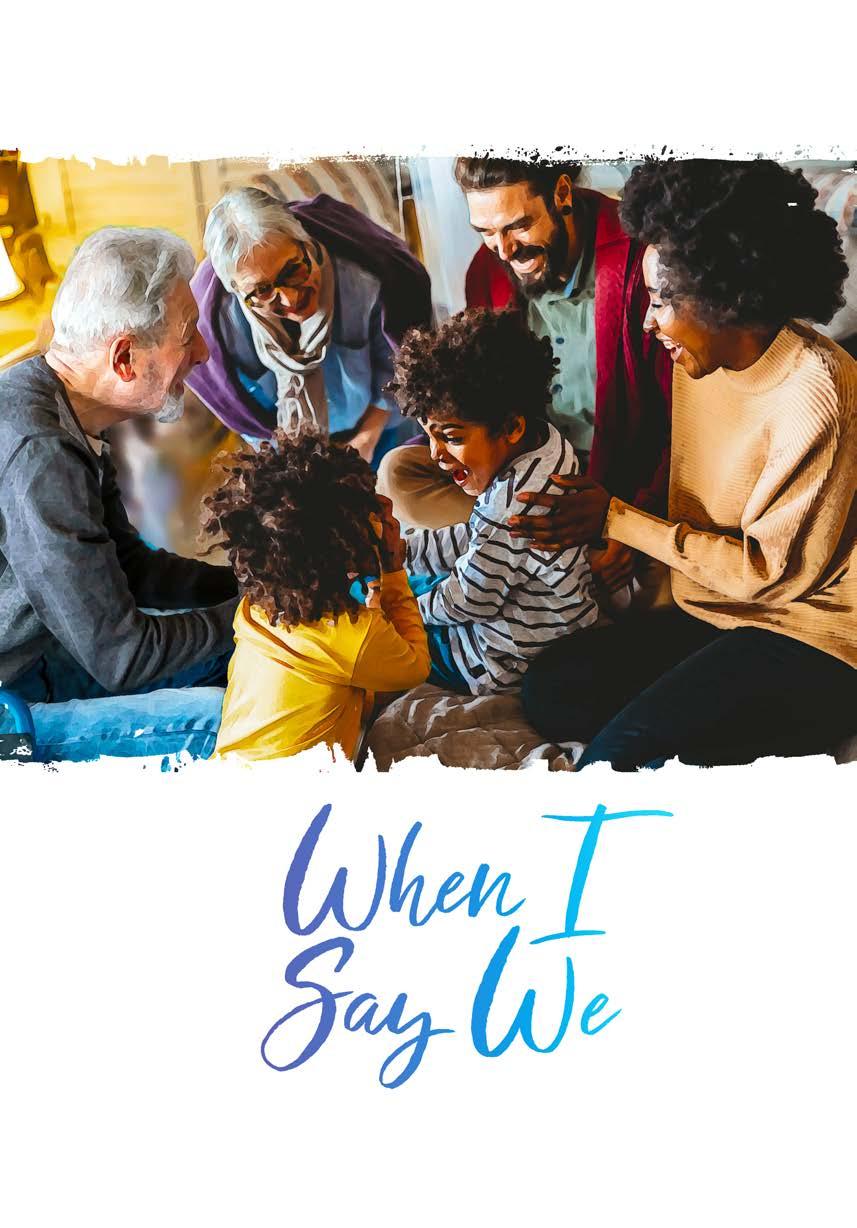
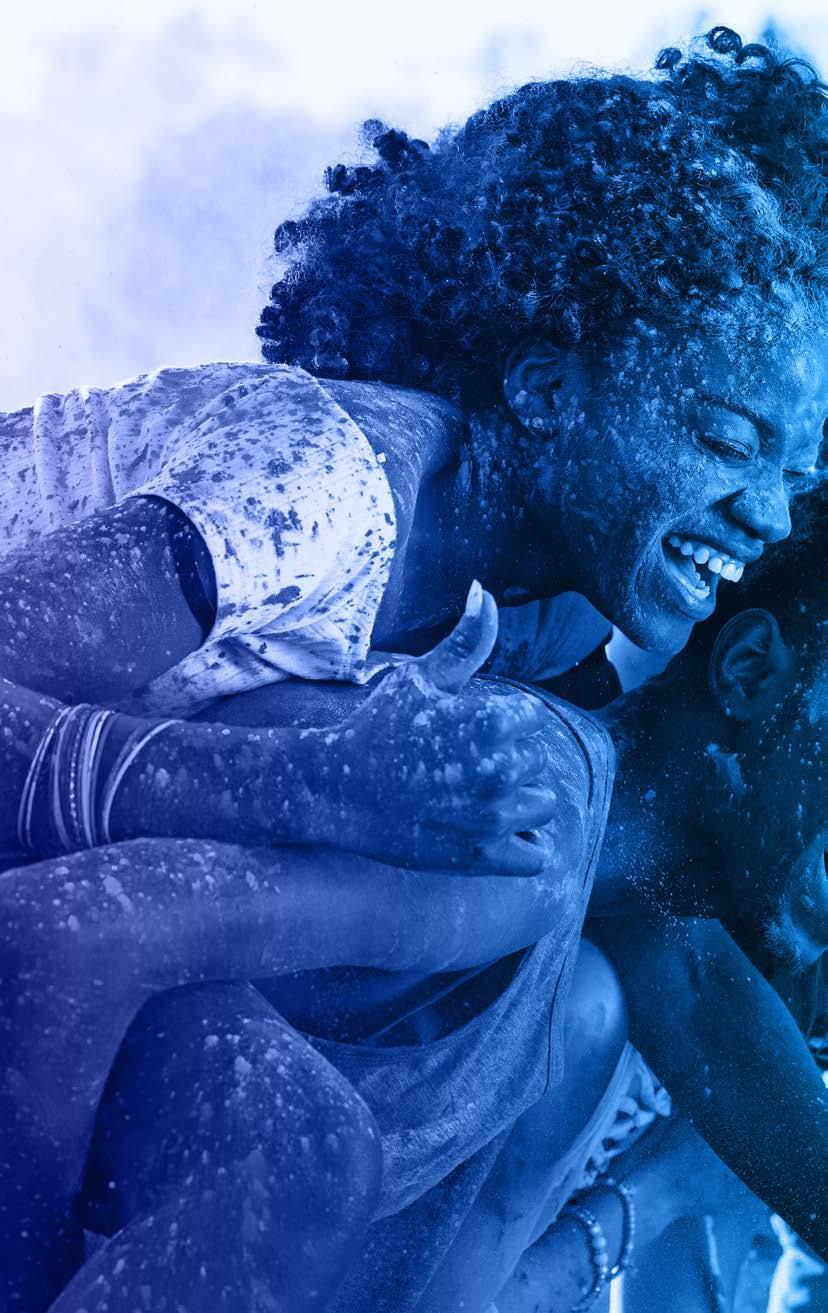
Stories of Family, Culture, & Traditions
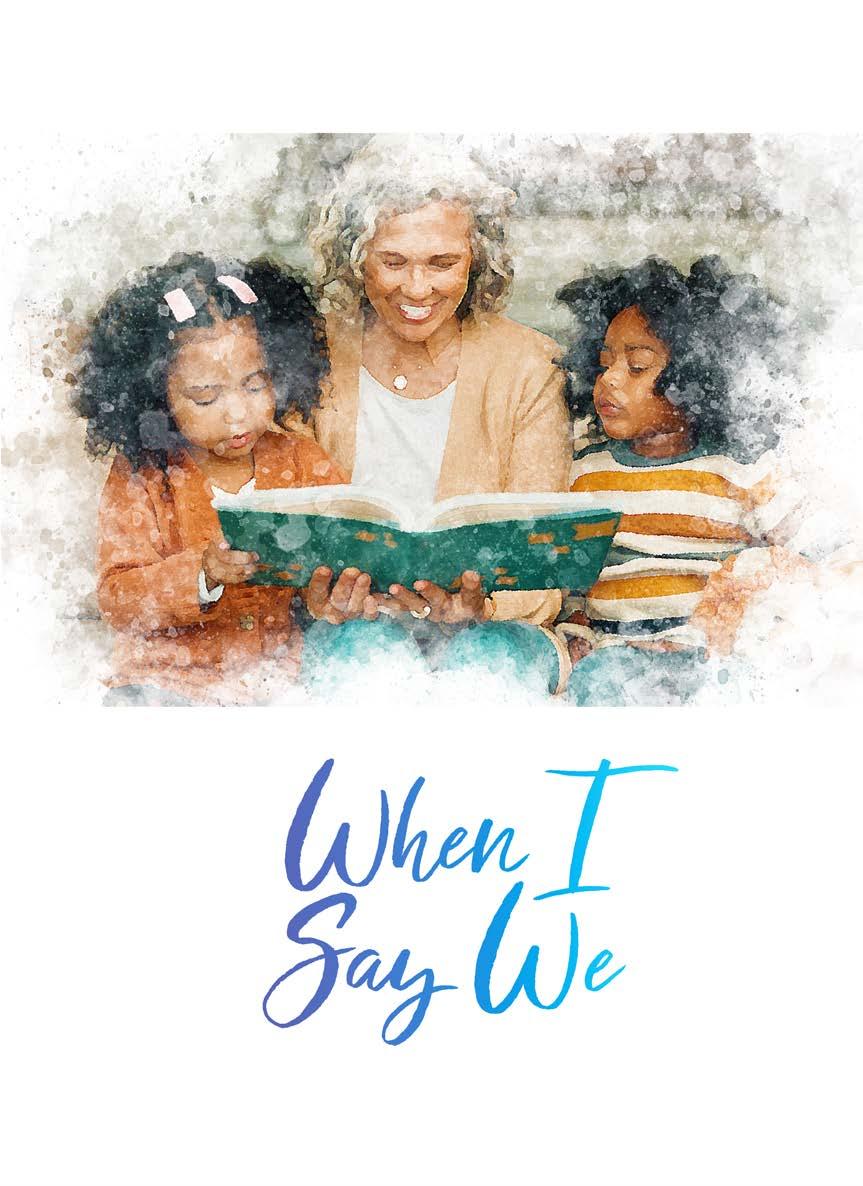

“When I say We” Issue—Spring 2023 published by Randolph Community College. Uwharrie Dreams Magazine and Randolph Community College maintain the copyright for this publication and its contents. Copyright for both narratives and photography used in this issue reverts back to the writers and photographers immediately after publication. Reproduction or alternative use of stated material cannot be made without the consent of Uwharrie Dreams Magazine or RCC. For further information concerning reproductions, please contact Victoria Davis (vldavis@randolph.edu). Written works include winners and other selected contributors from the Uwharrie Dreams Creative Writing Contest of Fall 2022-2023. Winning photos from the Uwharrie Dreams Call for Art/Photography Submissions of Fall 2022-Spring 2023 are also featured. Congratulations to you all!
Uwharrie Dreams supports and advances RCC student endeavors in all genres of creative writing and the visual arts. We encourage creative exploration, selfexpression, teamwork, and the development of skills in current and emerging media.

Uwharrie Dreams is a club for students interested in creative writing, under the auspices of the Student Government Association. It began in 2003, as part of the fine arts activities for Randolph Community College students. This group helps students prepare submissions to RCC’s Writers Contests, sponsored by the SGA.
For more information about the Uwharrie Dreams club, contact faculty members: Victoria Davis (vldavis@randolph.edu) or Dr. Gregory W. Vance (gwvance@randolph.edu).

Table of contents Student Submissions ....................................................................... 5 Trenzas by Sara-Michelle Figueroa ........................................................ 6 My Mother’s Pulao Recipe by Alisha Khawaja .......................................... 8 Hair, Hair, Hair by Lera Foust ............................................................. 10 Relax by Lera Foust ........................................................................... 11 Latitude by Kassandra Ciriza-Monreal ................................................... 12 I’m Your Biggest Flan by Kassandra Ciriza-Monreal .................................. 14 The Tradition of Love by Maddi Burnette ............................................... 15 But How Much? by Marisol Lopez Mondragon .......................................... 16 Mawmaw, Nancy Alderman by Elizabeth Alderman ................................. 17 African Culture by Nicole A. Kouame .................................................... 18 In It for the Stories by Christopher Morrison .......................................... 20 The Rock by Joda Lackey ................................................................... 22 My Best Friend, Garfield by Cindy Booth ............................................... 24 An Old Friend by Jessica Martinez ........................................................ 26 Everyone Everywhere Has Forgotten History by Reneé Skaggs ................... 28 What If by Reneé Skaggs .................................................................... 29 Moving to Japan by Reneé Skaggs ........................................................ 30 Silver Waves Under a Golden Sky by Kassandra Ciriza-Monreal ..................32 Faculty/Staff Submissions ................................................................ 33 Icelandic Turf Home by Caley Anderson ................................................ 34 Finding My Family by Fred D. Watts, III ................................................ 36 Mini-Mince Pies by Dorothy Hans .......................................................38 Marn-Marn’s Snowballs & Crescents by Dorothy Hans ........................... 42 When I Say We by Pamela Burleson ..................................................... 44 Homes Away from Home: A Definition .............................................. 46 by C. C. von Werklaäg - translated by Dr. G. Warlock Vance Note from the Editors ..................................................................... 48

4


5
y Sara-Michelle Figueroa
Sitting in the middle of her aunt’s salon, there stood little Sara, red-faced and in pain from the constant pulling of her long brown hair. It was tradition in their family that, every month, she and her sister would get their hair braided by the caring, independent women of their family. Two single trenzas (braids) hanging off their backs, a sacred representation of the Honduran and Spaniard heritage in their blood. Growing up in Tegucigalpa, Honduras was a real-life fantasy. They went to school with students who shared a love for music and classical dance. They had classmates who, just like them, wore two single trenzas proudly. It was a symbol that united them culturally. That is, until Sara’s parents separated, and her mother bravely decided to move to the United States in search of a better future. A young Sara, naive and optimistic, had been thrilled at the prospect of living in a brand new country. However, once their airplane landed at Newark Liberty International Airport’s runway, that life-changing moment suddenly turned scary, and Sara found herself reaching for her braids in an attempt at self-consolation.
Asheboro, North Carolina, was the most southern city Sara ever lived in. They moved there toward the end of her fifth-grade year, and she basically grew up in the place. In Asheboro, she was surrounded by peers with different cultural norms. Everyone had the same white polo shirt, played for the same sports club, and oddly enough all the girls wore their hair down, perfectly framing their freckled, pretty faces. Once here, Sara’s trenzas no longer felt strong and beautiful. They appeared ugly and dull compared to the golden, blonde hair of her new classmates.
“Uh, hel..lo, my name..is Sara.”
“Se-rah?”
“No, no. Sah-ra.”
“Same thing. Everyone, let’s welcome our new student, Se-rah.”
To this day, Sara remembers sitting down, perplexed and defeated at the fact that she couldn’t even defend her name. And so as life would have it, it got to the point where she refused to be Sah-ra from Tegucigalpa and instead become Se-rah from Asheboro. At the time, her only thoughts had been for survival, either to embrace the Americanization of her identity or suffer from neglect and succumb to isolation. The name her mother had chosen so delicately in honor of its meaning—a noblewoman—became the complete opposite, and looking back, there had been nothing noble about ditching her roots. Twenty-fourteen.
Twenty-fifteen.
Twenty-sixteen.
Twenty-seventeen. Twenty-eighteen.


6
STUDENT CREATIVE NONFICTION WINNER
Time passed and Se-rah grew older and dumber. For almost five years, Se-rah did everything to forget about her beloved Honduras. Not only did she adapt to her foreign sounding name, but she also untied her trenzas shamefully, letting her hair frame her dark eyebrows and tan face. Her “fresa era,” where she fit into the superficial youngster category, continued, and so happiness was never something she truly came to recognize until
Twenty-nineteen.
On her birthday that year, her mother asked what she wanted. As she stood there thinking, she realized there was one thing she longed for again to repair that hole in her heart. “Mami, would you do my braids please?”
From that day on, Sara began to look for authenticity in her life again, and for the next two years, she began to embrace her heritage once more. She, along with her family, implemented the Catracho background everywhere they went. They celebrate the new year with the tradition of the Twelve Grapes, and Sara even attempts to make tamales by herself…salty; they always come out too salty.
With much pride, Sara began to wear her hair in trenzas again, and to this day, it has become one of her signature hairstyles. The Latino culture isn’t a trait or a trend. It defines who Sara, along with many other fellow Latino people, are. Her renowned actions are ripples of the Catracho background she upholds, and because of that, she promised herself to represent her country in a better way. Honduras is known as one of the most dangerous places to live in. However, its history can’t deny the beauty in its poverty. By working together as one people, Honduras will one day hopefully be recognized for its unique slang, artistic communities, and, most importantly, the two single trenzas which adorn our girls’ heads like brilliant, proud crowns.
Hay un astro; hay un astro de nítida luz!

7
My Mother’s Pulao Recipe
 by Alisha Khawaja
by Alisha Khawaja
One aspect of my cultural identity is tied to basmati rice. Basmati is a grain of fluffy rice known for its aroma and nutty flavor. It is derived from the foothills of the Himalayas and is the secret to peace in South Asian families. Besides filling my stomach, basmati rice has taught me life lessons about my daily interactions with others. For instance, my grandmother lives with us, and sometimes she and I will argue until we both slam our doors and refuse to speak to each other. My mother will sit us down with a bowl of rice, forcing us to communicate and eventually hug one another.
Over time, I learned from her techniques. I listened to both sides of arguments and resolved conflicts with family members. Reconciling after household arguments taught me to accept everyone for who they are. I learned to respect everyone and their differences, even if they chew loudly. In my family, it is not uncommon to bring a tray of rice to someone’s doorstep as a peace offering. Just last weekend, my mom and I went to my aunt’s house with other female family members to share rice and put aside our differences.
The corner of our pantry where rice is stored reminds me of my community and family. Through basmati rice, I learned how to be humble and resolve fights. I grew in wisdom while appreciating my culture. Silly disagreements are not worth destroying relationships, but basmati rice is worth reconciling over.

8
STUDENT RECIPE WINNER
Ingredients:
-
2 pounds of mutton meat
- 3-4 cups of basmati rice
- 10 cloves of garlic
- 1 tablespoon of ginger
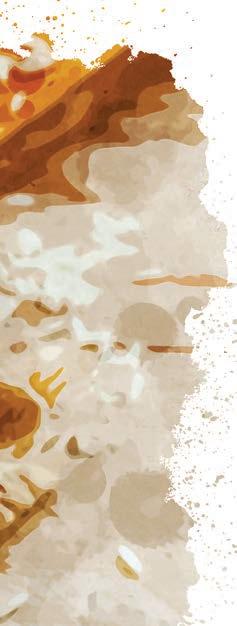
- 2 tablespoons of garam masala
- 2 medium-sized onions
- 1 medium-sized tomato
- 2 tablespoons of salt
Cooking Steps:
 by Alisha Khawaja
by Alisha Khawaja
- Soak basmati rice for about three to four hours.
- Boil the mutton meat until it becomes tender.
- Slice the onions.
- Chop the tomato.
- In a separate pot, fry the onions on medium heat.
- Continue frying until slightly brown.
- Add your chopped tomato.
- Add your salt and garam masala and continue frying.
- Add the mutton meat.
- Add your soaked rice.
- Let it cook on medium heat until the rice is fluffy.
- Add some seasoned yogurt to top the rice.
9
Hair, Hair, Hair
by Lera Foust
Hair here
Hair there Hair everywhere.
We care for our hair, As a culture we share.
Straight hair, braided hair, no hair, ‘fro hair, Decades of dreads and styles of beauty, Locs of love, or silk pressed smoothly, My hair, her hair, your hair, our hair.

10
Relax
by Lera Foust

Four bathroom cabinets brimmed with hair products, 30 minutes till school starts, two curly headed impatient children, and one mutual agreement: no flyaways. Me and my little sister have taken note of our makeup artist and model of a mother doing her hair many times over, making us completely confident in our abilities. Dampening our heads under the water faucet, semi aggressively weaving the comb through our hair, and selecting the first bottle resembling slight familiarity to what our mom uses; phase one was complete. I squeezed a glob into my hands and plopped it on my head. Like a geezer in front of a fan I kneaded the unknown substance thoroughly in my scalp as my hair blew in the wind; phase two complete. About this time mom walked past the bathroom door, saw the olive oil hair relaxer open on the counter, as her eyes slowly drifted to the still evident glop on top of my head.
“What are you doing?” my mother rhetorically said.
Relaxer - A hair product that straightens natural curly hair, permanently and chemically changing it. I don’t remember my answer or how long it took her to get the relaxer out of my hair, but either way both consisted of her passive aggressively explaining how dangerous it was putting random gels in our hair. Thankfully once it was all out, we didn’t have to detangle, comb, or style our hair by ourselves for a long
11
Latitude
 by Kassandra Ciriza-Monreal
by Kassandra Ciriza-Monreal
I left, but I stayed rooted in the cobblestone streets of my grandmother’s neighborhood.

I left food and places.
My soul refuses to abandon the natural fertilizer of the earth that nourishes my veins. I left expressions and gestures.
For now, my body wanders in unknown places that some call America. Sleeping in life, dreaming a dream for which millions die in the desert.
I left my people and my loves.
But I still keep the key, like a chain that keeps me prisoner of a place Where my soul still resides.
Each time I return, I can hear in the corners, The sun over there doesn’t burn like it does here.
Maybe my tanned skin
Lost its tint on the journey, but the blood flows in me like a rampaging river stained by the clay that hides beneath the soil.
No, maybe the sun doesn’t burn.
But loneliness dries me up, the roots shrink and are consumed by time. And when the walls of my room shrink so much that one day my bed no longer fits, I start emptying my closet,
Where the first thing to go are the memories and the souvenirs that one day I left in another latitude.
It is then that I become tiny.
I pack myself in the same suitcase that holds everything I can’t let go of In a hopeless bid to go all the way back home.
STUDENT POETRY WINNER 12
Latitud
 por Kassandra Ciriza-Monreal
por Kassandra Ciriza-Monreal
Me fui, pero me quedé enraizada en las calles empedradas del barrio de mi abuela. Dejé comida y lugares.
Mi alma se niega a abandonar el abono natural de la tierra que nutre mis venas. Dejé expresiones y gestos.
Por ahora, mi cuerpo deambula por lugares desconocidos, que algunos llaman América.
Durmiendo en vida, soñando un sueño por el que millones mueren en el desierto.
Dejé a mi gente y a mis amores.
Pero aún conservo la llave, como una cadena que me mantiene prisionera de un lugar Donde mi alma aún reside.
Cada vez que vuelvo, puedo oír por los rincones “el sol de allí no quema como el de aquí”.
Tal vez mi piel morena
Perdió su tinte en el viaje, pero la sangre fluye en mí como un río desbocado teñido por la arcilla que se esconde bajo el suelo.
No, tal vez el sol no quema.
Pero la soledad me seca, las raíces se encogen y las consume el tiempo. Y cuando las paredes de mi habitación se encogen tanto que un día mi cama ya no cabe, Empiezo a vaciar mi armario,
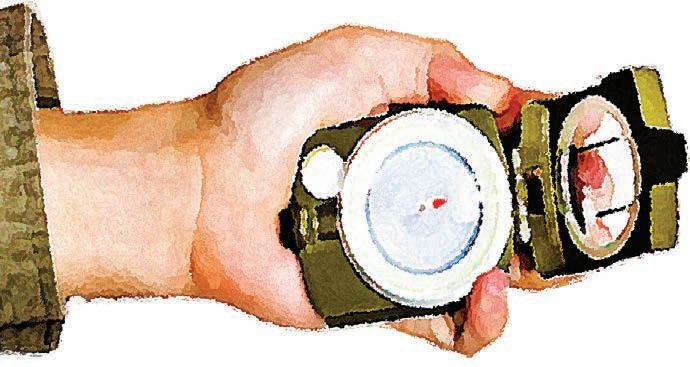
Donde lo primero que se van son las memorias y los recuerdos que un día deje en otra latitud.
Fue entonces cuando me hice diminuta.
Me meto en la misma maleta que guarda todo aquello de lo que no puedo desprenderme
13
A Traditional Flan Recipe
 by Kassandra Ciriza-Monreal
by Kassandra Ciriza-Monreal
Utensils
• Blender
• Baking pan
• Baking tray
• Oven
• Refrigerator
• Aluminum foil
• ¾ cup refined sugar
• 1 can of condensed milk
Ingredients
• 1 can of evaporated milk
• ¼ package of cream cheese at room temperature

• 5 eggs
• 1 tablespoon vanilla essence
1. Preheat oven to 180 C (356 F).
Heat
2. Pour the sugar in a baking pan and heat over medium heat to form the caramel; carefully tilt the pan to cover the surface.
Mix
3. Blend the condensed milk with the evaporated milk, cream cheese, eggs, and vanilla essence. Pour the mixture into the baking pan and cover with aluminum foil, sealing the edges. Place in a bowl and bake in a water bath in the oven at 180 C (356 F) for 1½ hours.
Serve
4. Remove from heat and let cool completely for one night; remove from mold and serve.
14
As inspired by Shakespeare’s Hamlet by Maddi Burnette

In one’s lifetime, heartache may be inevitable. We tend to ignore the blood-red signs waving in the sky, choosing risk over sure contentment, disregarding the lust of others. We long for being known, for soul ties pulled tighter and tighter in hope that if they come loose, happiness will be written on the next page. All or nothing becomes too complicated when you are stuck in a world where efforts do not align with yours. Casual labels and the freedom of leaving are tempting, but the mangled heart being released brings short-lived relief. But, may past lovers return, And make us suffer again?

15
by Marisol Lopez Mondragon


“Family is important to me. It is what I love the most,” Carlos told Lorelei. Inside though, Carlos knew he was not treating his family well. He had already graduated high school four years ago. After, he had only made it past two years of college before dropping out.
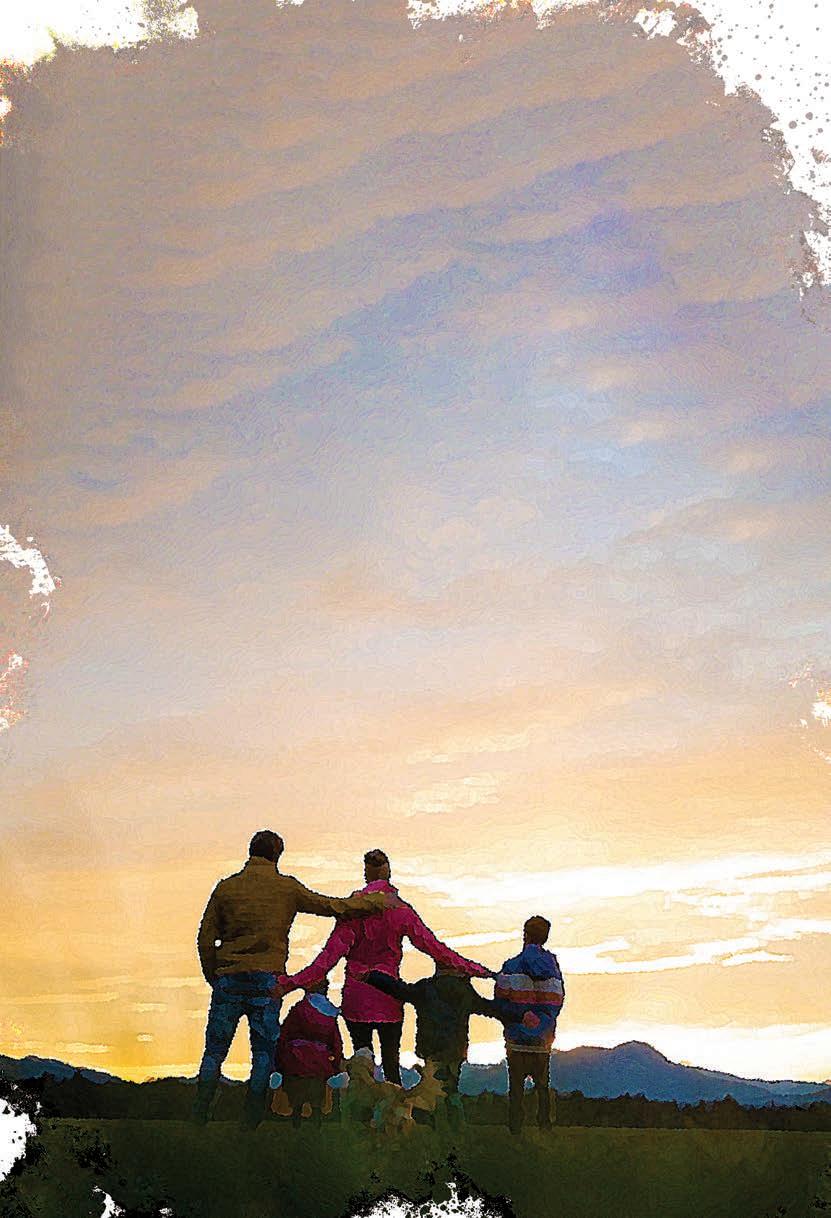
What he loved the most. At least, that is what he said. But he would also say, “I will get a job soon, I promise.” When he had nowhere else to go, Carlos was staying at his parents’ home. But Carlos knew he was not searching for anything, and he had decided he would stay there for a while since it was his family. They would not kick him out, considering he was the “baby.”
Deep down, Carlos felt guilty, but he did not know what to do about it. Then, one day, Carlos decided to tell Lorelei what he was doing. And his childhood best friend was not happy about it. “Your family loves you very much, so do not use them,” Lorelei told him bluntly. Her words made Carlos think of how much his parents had loved to receive his hugs and kisses when he was young. He knew he was not in the right, but his dignity and pride were too big, as they had always been.
In the end, Carlos finally apologized to his parents. While they were not happy, they understood that everyone makes mistakes. They knew that if he tried to change, he could be different. The moral of the story is that if you are using the people you “say” you love the most, change before it is too late. Some of us are beyond blessed for having family members close to us, but others are not. We should learn to value what we have, and I, speaking for myself, have learned to do so. I was not always as close to my family as I am now. But as the title says, I asked myself, How much do I love them? I have learned to value my family and spend as much time as I can with them because they are the ones who matter the most to me.
STUDENT FICTION WINNER 16
by Elizabeth Alderman

Mawmaw was kind.
She was a wife, a mother, and a grandmother.

Mawmaw loves us still.
She is now in heaven.

We will always have her in our hearts.
I love you, Mawmaw.
17
by Nicole A. Kouame

For people in my country, there is a special focus when it comes to most aspects of life. It doesn’t matter if it’s parents, older siblings, or younger ones. Growing up I never heard anyone say this is what everybody needs to do, it was simply natural that we did things in this manner without realizing it. It is still the way Africans treat family or marital problems as well.
And what is it that African parents focus on? They pay far more attention to the needs of male children and their education than females. Their reason is that a female will one day get married and bear her husband’s family name, while her maiden name will be lost. On the other hand, sons will marry, and have children to carry the family name from generation to generation. Thus the first son in a family is singled out with big responsibilities foisted upon him, for it is he who takes the father’s role when the elder passes away.
It comes naturally for older siblings to look after and take care of their young ones. Whether or not they are asked to do so, this is the way it will be. Parents raise their kids, and when their older children are of age, they take over the mom and dad’s responsibilities. This is the reason why parents insist that their oldest kids find jobs allowing them to settle down, and to start their own families. In this way they help raise their younger siblings. A brother or a sister will rear a brother or sister like they would their own children.
I helped my mom on behalf of the younger members of my family until things got too complicated for me to continue. The Covid-19 pandemic dealt me such a blow that I struggled to take care of my own children. There were some responsibilities that I could not continue to do. This meant that I was unable to follow my cultural duties. Even though I was not asked to take on these responsibilities, I did so in the way I was supposed to until I could no longer handle the task. When things got hard on me, I had to let go of a few aspects of this situation. This did not go well with others in my family.
Unlike in America where a large percentage of the population can care for themselves until they are elderly, aging parents in many African countries become their children’s responsibility. When they are old and cannot do much for themselves, they stay with one of their children, or with a close relative who remains alive. In America, I see many older parents residing in nursing homes because everybody is so busy to care for their needs.

18
One day, I was talking to my coworker about how different it is to take care of elders. He told me that, in America, some people save money in preparation to live in such places. In this way, they have others to tend to their needs when they get older and are unable to do much for themselves. Thanks to the American culture, the number of jobs for Nursing homes remains steady, with staff taking care of family members.
When there are problems in the family, the elders assist in resolving them. When it comes to marital difficulties, both the husband’s family and the wife’s family meet with the couple to sort out the issue between them. This is the first way to help young couples stay married unless a divorce cannot be avoided. But no matter what happens, the importance of family is never lost.
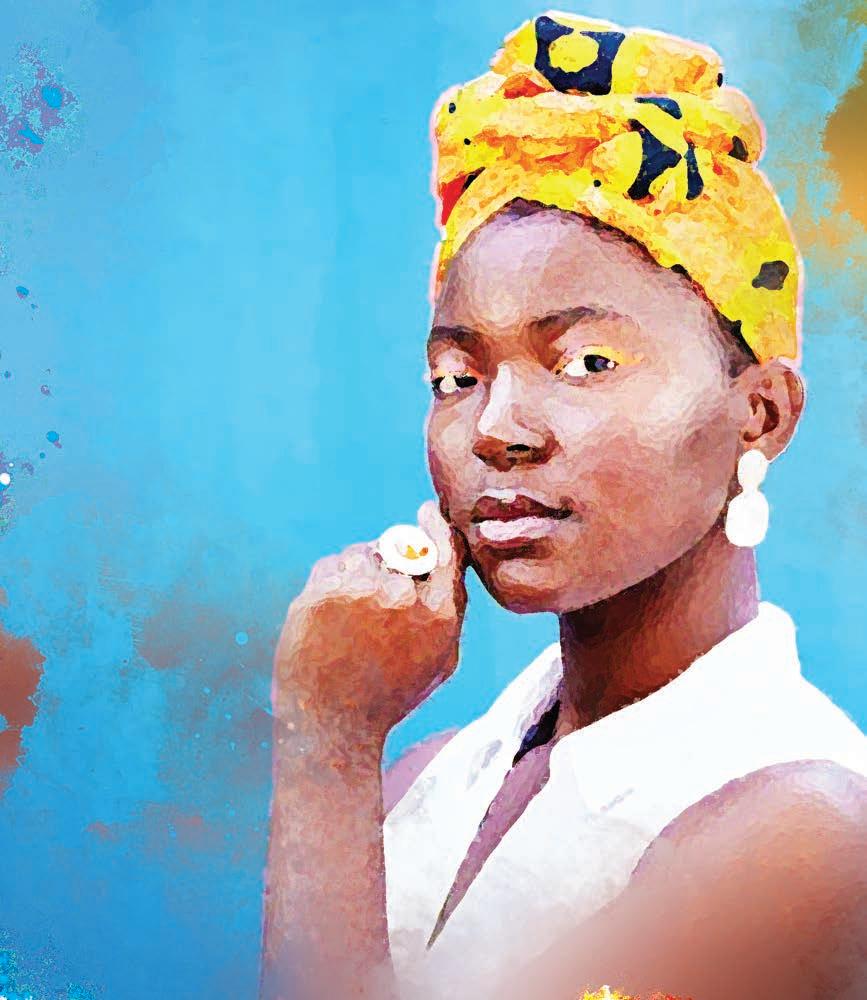
19
Growing up, I had a pretty normal life. My middle-class, white family hailed from the suburbs of “(tr)Asheboro,” North Carolina. My mom was a first-grade teacher, my dad a police officer. The only thing that made our family stand out in the sea of Kevins and Karens was our cat, Alex. He wasn’t always special, though.
When I was about five years old, my parents bought a house right across the street from my grandparents. Alex came with the house, in a way. On moving day, we all heard a kitten meowing from somewhere in the house, but it was completely empty. We searched in cabinets and air vents, but since we hadn’t even started moving in yet, there weren’t many places to look. Then we heard scratching coming from inside the wall. A quick call to the fire department and a giant hole in our new living room wall later, and Alex became a part of the family.

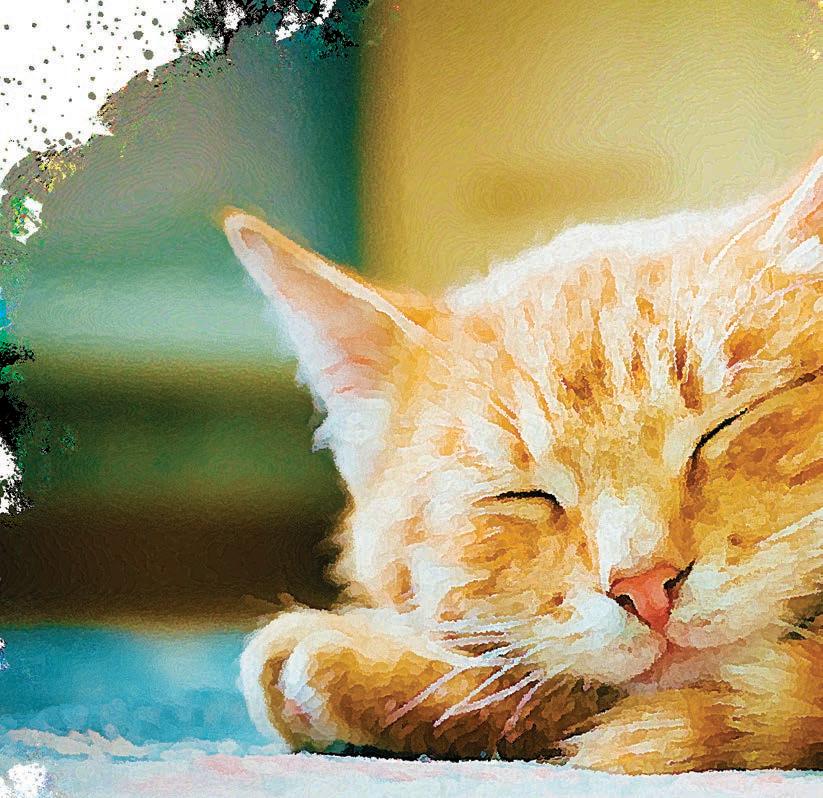

As I was learning to read, I would practice aloud in my room every day after school. Alex was usually sunbathing in the window beside my bed when I got home, and I always thought it was because it provided him with the most warmth at this time of day. It wasn’t until I started reading in other places around the house that I realized Alex was in it for the stories. The first time I read in the den instead of in my room, he showed up as soon as he heard the first page turn. When I read in the kitchen, the same thing happened. Then in the living room, and the sunroom—even in my dad’s “man cave” in the basement, which Alex usually hated for its lack of sun patches.
I told my mom about this discovery, and she was, of course, skeptical.
“I think he just likes your company,” she said.
20
“He likes everyone’s company,” I argued. “As soon as I start reading though, he finds me. He even followed me in the man cave! WILLINGLY!”
That last statement caught her attention.
“Willingly?” she asked. “The last time your dad tried to get him down there, he almost lost an eye! You didn’t ‘nip him out’ or anything?”
“Nope! I just opened a book! Watch!”
Down to the basement we went, a copy of The Hungry Caterpillar in hand. We sat down and gave each other a quick nod. This was the moment of truth, and to be honest, I was nervous. What if Alex wasn’t listening to my stories and just wanted to escape the crippling loneliness he experienced daily while nobody was home? If I couldn’t read stories to my cat, would I ever want to read again?
I took a deep breath and opened the cover. To my relief and my mother’s surprise, before I could finish reading the first sentence, we both heard the soft pitter-patter from Alex sprinting across the house and down the stairs to us. He hopped up on the back of the couch and stared directly at the pages on my lap while my mother’s gaze went back and forth from me to him.
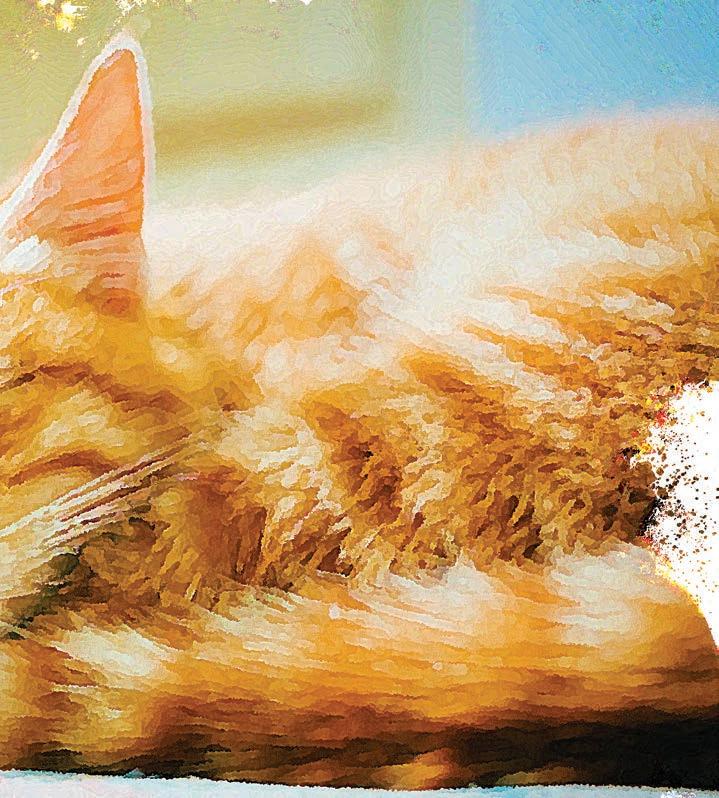

“Well, I’ll be...” was all she could mutter at the time.
Over the next few years, my reading level grew as well as Alex’s desire to listen. We decided as a family to enroll our special kitty in some obedience classes so he could become a volunteer at the city library. After his graduation, a few times a week we’d take Alex to sit with kids while they listened to stories and got a little extra reading practice.
Although Alex is no longer with us physically, his memory lives on through the memorial dedicated to him in the children’s room of the library.
21
by Joda Lackey


When I was young, I went to a very small private school. The term “private school” should be taken with a grain of salt, as I’ll explain. It was a tiny building connected to an urgent care facility. The student population was so small that they managed to fit kindergarten through twelfth grade all in the same building. There were three teachers in the whole school: one for elementary, one for middle, and one for high school. The elementary teacher was my mother, who taught in exchange for tuition for my siblings and me. We didn’t have a coach for P.E., but we did have my friend Alex’s mother, the school secretary, who also worked for his tuition.
P.E. at this school consisted of a box of cones, balls, and various other sports equipment, and a plot of dust behind the school. Surrounding this plot was another business, a field of tall grass, a wall frequently tagged with profanity, and a truck stop. We had an hour after lunch to play in this field, supervised only by Alex’s mother on her smoke break. Nobody in my class had much exposure to sports, but we enjoyed kickball and dodgeball for a little while. We played these sports as long as they were fun, but as imaginative kids with limited supervision, we quickly became more interested in the strange environment around us.
When interest in sports declined, students in my class began exploring out past the plot of dirt. My sister and one of her friends found a broken crate of some sort past the field of grass, and they turned it into a little fort with some additional scrap wood. This inspired other students to settle in various locations around the plot. Eventually, a strange civilization started to emerge. Some girls created a sort of oasis within the tall grass, and one girl started weaving baskets there.
22
An economy started to develop when the girl wanted to sell the baskets, so acorn caps became our currency and many people started taking up trades. As the students got more into it, they split off into different groups. It was only a matter of time before play battles broke out. Kids would make spears from the stalks of grass in the field and fight out in the dirt plot. Seeing this development, my friend Alex and I cornered the market in scrap wood and started a sort of weapon manufacturing business. We would smooth out pieces of wood on a brick wall, shape them into swords and knives, and sell the weapons for acorn caps. This was a lucrative business, because apparently children really like pretending to do battle.
Alex and I prospered for many recesses until one fateful day. We were searching for scrap wood when we came across a strange looking rock. It was black and shiny, but more interestingly to us, it was very light. The rock was about the size of a soda can but as light as a feather. In retrospect, it was most definitely a chunk of tar from a nearby telephone pole. But at the time it was a valuable artifact, and I planned on getting a lot of acorn caps for it, since, after all, I was the one who found it. Except Alex insisted he was the one who found it.
What ensued over the next couple of weeks was a battle of epic proportions, for a small child. The multiple groups fused together into two factions and proceeded to fight for possession of the rock. The war that developed was so important to everyone that arguments would break out in the middle of class, confusing my poor mother.
The war steadily carried on until one day when a particularly heated battle abruptly ended with the rock falling and breaking in two. The magic faded in an instant, and the once valuable artifact was now just a broken rock. Next came blame, and ultimately Alex and I agreed it was so important that we simply couldn’t remain friends.


Alex and I refused to speak to each other during class and avoided each other during recess. This petty sort of behavior lasted for a few weeks. During this time, the civilization that had developed started to crumble. The toll the war took on the economy and people’s businesses was too great, and many students just didn’t care enough to rebuild it. The final blow was when a homeless man mistook my sister’s fort behind the grass for an outhouse, symbolically spelling the end of our little civilization.
Eventually two really athletic brothers transferred from a public school and sports were quickly reintroduced into our recess time. The war and rock eventually became just a memory, and Alex and I rekindled our friendship after being picked for the same kickball team. We applied our competitive natures to the game instead and formed an unstoppable kickball duo. To this day, Alex and I are still friends and regularly talk. The rock had not come up for years until I found my half while moving, and come to find out, he still has his too.
23
by Cindy Booth
I was born and bred way out in the boonies in the mountains of West Virginia. A coal miner’s daughter, I was a very quiet child. Because I didn’t have much to say, I was often bullied. I was very lonely and longed to have a friend, one that would lift my spirits and get me out of my deep, dark depression.


Every day that I was in school felt like torture. I hated it! Children would make comments like, “Cat got your tongue?” or “You’re ugly, fat, and stupid!” I dreaded each day, and hated going home even more. Being nine years old, and having no one to confide in, weighed heavily on my young heart.
Then one day it happened! Like many great things, it came out of nowhere, a magic moment! I came home from school and went to feed the chickens in the chicken house. There was a hen I called Matilda and she laid eggs every day. However, on this particular day, she had more than just eggs. Several feet from Matilda lay a fluffy little orange kitten, with the most beautiful blue eyes I had ever seen! Matilda did not want me to get close to it; she seemed very protective. However, by the end of the day, she had finally let me close enough to the kitten that I was able to pick it up.
The mom cat was feral and did not come back to feed it, so my aunt Brenda took the kitten to her house because she had a cat that was nursing her own litter. Her cat took care of mine. I went to her house every chance I could to see my kitten. I could hardly wait for it to be weaned, so that it could come home with me. My grandpa and aunt picked on me all the time that they were going to keep the kitten, but my grandma told them to stop teasing me because I had enough troubles at home.
My family was very dysfunctional. Both of my parents drank heavily. They often abused my siblings and me. Each day when I got off the school bus, I would stay out in the woods till almost dark before going home. I built myself a little tent so that I could pretend I had a normal family. I longed for my kitten to finally come home.
When that day came at last, I named my kitten “Garfield.” People say that dogs are man’s best friend, and that you cannot teach a cat the same way you can teach a dog, but I disagree. I taught Garfield to shake hands, climb up on my shoulder and tip my hat down with his paw. I taught him that when there is danger to run as fast as he can and hide. I would clap my hands and say “Run, run, run!” and he would take off at top speed, then look behind him to make sure I was running with him. If I was not, he would stop, meow, and wait on me to catch up.
24
A violent psychopath lived up the hill behind our house. People in that area warned us kids to stay away from him. He would shoot at people’s pets and scare everyone in the neighborhood. How he was allowed to own guns, I will never know! I reckon West Virginia is famous for the crazy, backwards people.
One day, I was out playing with Garfield when I heard the crazy man coming through the woods talking to himself about eating a cat! I had my bike with me, so I started to peddle, and yelled at Garfield to run and hide. He took off running and I continued to peddle just as fast as I could. Garfield found a great hiding place behind some bushes; he sat very still. I was peddling so fast that I neglected to see the big tree branch directly in front of me. My bike wheel went over the branch, but the collision sent me flying into the air! I held onto the handlebars for dear life. The bike flipped me over, onto my back, with a loud thump. I am not sure why, but when I hit the ground, I was still peddling the bike upside down and laughing my head plumb off. Luckily, the crazy man was nowhere to be found.
I had many fun, sad, exciting, and happy times with Garfield. I even taught him to sit out on a rock in the river. He was so smart a few people tried to “catnap” him. He made my days so much brighter in a world largely filled by abuse and loneliness. When I turned sixteen, my dad ran over him, but that is another story for another time.
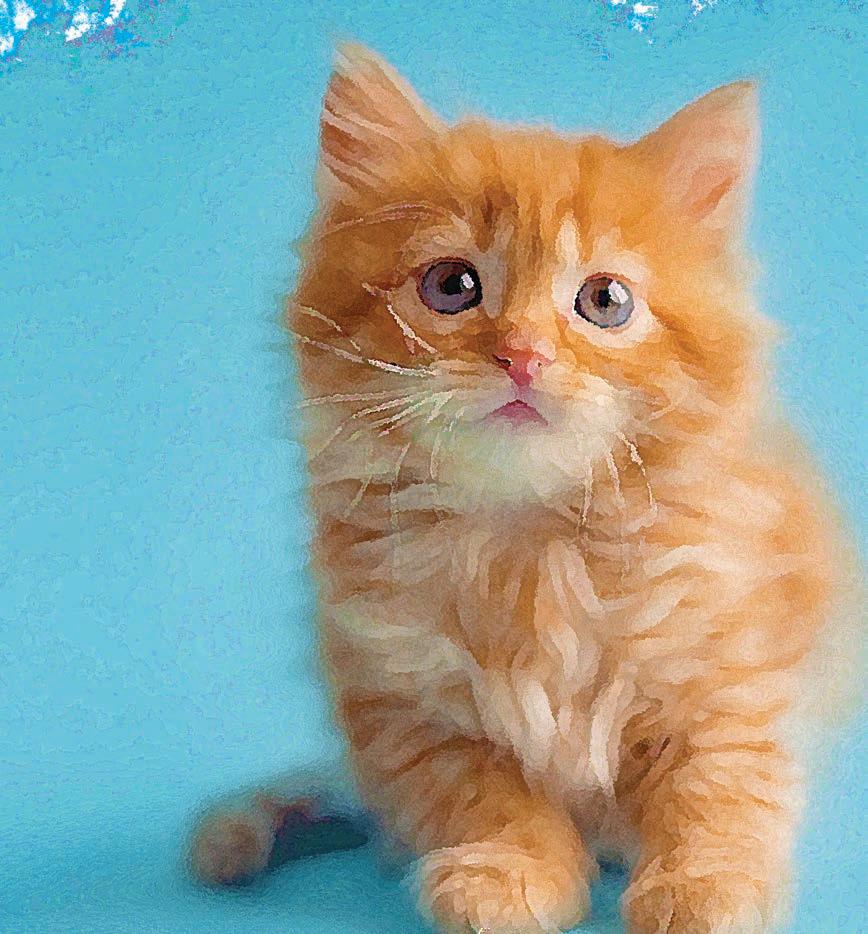
25
An Old Friend
by Jessica Martinez
When I was 11 or 12 years old, my parents were on the hunt for a bigger home. Our family was growing, so they finally settled on a light blue house, and that is where I spent most of my childhood. The place always felt creepy to me; it was kind of old, it had floorboards that creaked when you walked in certain places, and cobwebs often decorated the front and back porch. Sometimes webs would cover parts of the trees as well. I was never sure how they got there; it was not fun accidentally walking through them while on the way to the school bus, which happened more than once.

I had made some friends in the neighborhood. This was surprising since I was a quiet kid and wouldn’t talk to someone unless they talked to me first. One day at school a girl named Hailey came up to me and asked if I lived a couple houses down. She explained how she would see me around, and, after learning that I did, she asked if she could come over sometime to play. Later that week she came, and we rode our bikes around the street. After that, Hailey would come almost every day after school. On some occasions she’d bring her older cousin Danielle, who we called Dani.
Hailey would always find something for us to do, everything from jumping on the trampoline, exploring the neighborhood, or just going for a bike ride. Sometimes we would just sit on the trampoline and talking about our daily lives. Every now and then Hailey would bring something to play with, like dolls or other cool things she happened to find or have at home.

26
We would also go to my backyard, pretending we were running the house instead of just playing on the back porch. When other friends came, we might also explore the yard as there was quite a lot of space.

One place we would visit was this big rock I had further down my backyard; it had graffiti and drawings on it. We would cross the little river that was there with a long wooden plank we had placed, careful not to fall into the rock-strewn water. One time we were back there I had slipped off the plank and I fell in the water. Hailey found this funny, but as I was soaking wet and probably had bugs on me, I did not share her amusement. After that happened, I added some bigger rocks to the side of the plank so it wouldn’t be wobbly and so someone wouldn’t fall again.

We spent most that summer mostly outdoors, hanging out, just going inside for a snack or water. Hailey loved nature and didn’t mind getting dirty while I, on the other hand, did not so feel the same. I didn’t like getting dirty, but she showed me it was okay to get muddy once in a while as long as you were having fun.
Hailey and I would often tell scary stories as it got dark. I would tell her stories I came up with or some that my cousins had told me. There was one night where Dani was telling us a story involving a monster who had the power to change into anyone, which scared us pretty badly, yet we wanted to keep hearing more. We would come up with some frightening content considering we were little kids. I’ve always been into horror and Hailey was a very imaginative child, so in this way we really got along.
After that special summer, we headed to middle school. This meant different classes for the two of us. My family planned on moving before the academic year began, and so I didn’t hang out with Hailey after school anymore. We did share one class together that semester, which was art. The class was fun to be in and I would always look forward to it. We would work on drawings and painting projects together and then after that class she would walk me to my next one since hers was farther down the hall.
After that year we only saw each other in the halls en route to our next classes. By that point in time, she had her friends and I had mine. We would still talk on occasion, but we no longer hung out.
And now that I’m in college, I’ve only seen Hailey a couple of times around town. We didn’t really talk, so I don’t know what she’s been up to. For all I know, she might even have moved out of Asheboro. It does make me a little sad that I’m no longer in touch with her. She would’ve been a great friend with whom to maintain a friendship. Now, when I drive by the old house, I think of all the memories it holds and how many others have been made by the people who currently live there.
27
EveryoneHasEverywhere Forgoen History
Everywhere I go, Everyone I see, Has a different story to tell me.
How they lived, How they died day by day. Some did not even know what to say.
How they remembered, When they were forgotten, Their bodies were thrown out and rotten. Tears rolled down Their faces when I tell them, They will be remembered again.
Too many are looked over. And for what?
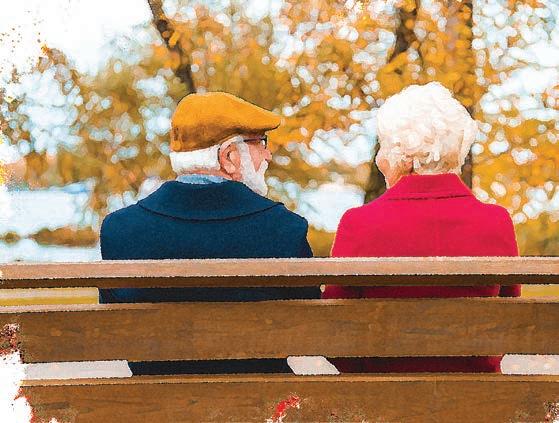
Their age or color?
The way they style their hair? Who they identify as?
Whether they are She, He, or They?

Our names will be remembered, I will not die like trampled flowers. I will be remembered for who I was! Not for my number of followers.
I refuse to be forgotten. Written off as worthless. Yes, the world may see my outer mess.
But I am human, So, treat me as such. Your opinion of me does not matter very much.
Not to me at least.
Everyone has that one story they will be known for. They have their novels and life’s work written, In the stories they have hidden. For fear of rejection, Or of judgement.
Those were the weeds they planted,
by Reneé Skaggs
In the minds of the “World Changers.” The people on top like the view, Even if they have to kill a few.
Everywhere I go I see their stories all around me, Everyone I meet has that one they will be known for, They are not asking for anything more.
Like anyone here, They want their voices heard. So let them be heard!
Stop pushing silence down the streets of music, Stop painting grey over the shades of red. Stop writing lies on the graves of the dead. Let those sounds be heard! Let those colors be shown! Let them engrave their own stone!
Let the songs in the street fill the air! Let it choke out the voices of liars, Give way to all the writers!
The people with skilled words, Let them write our history in the mountain stones, Let them remember us long after we lay in our tombs.
Let our history live on! Keep remembering! Long after we are gone.
28
What If
by Reneé Skaggs
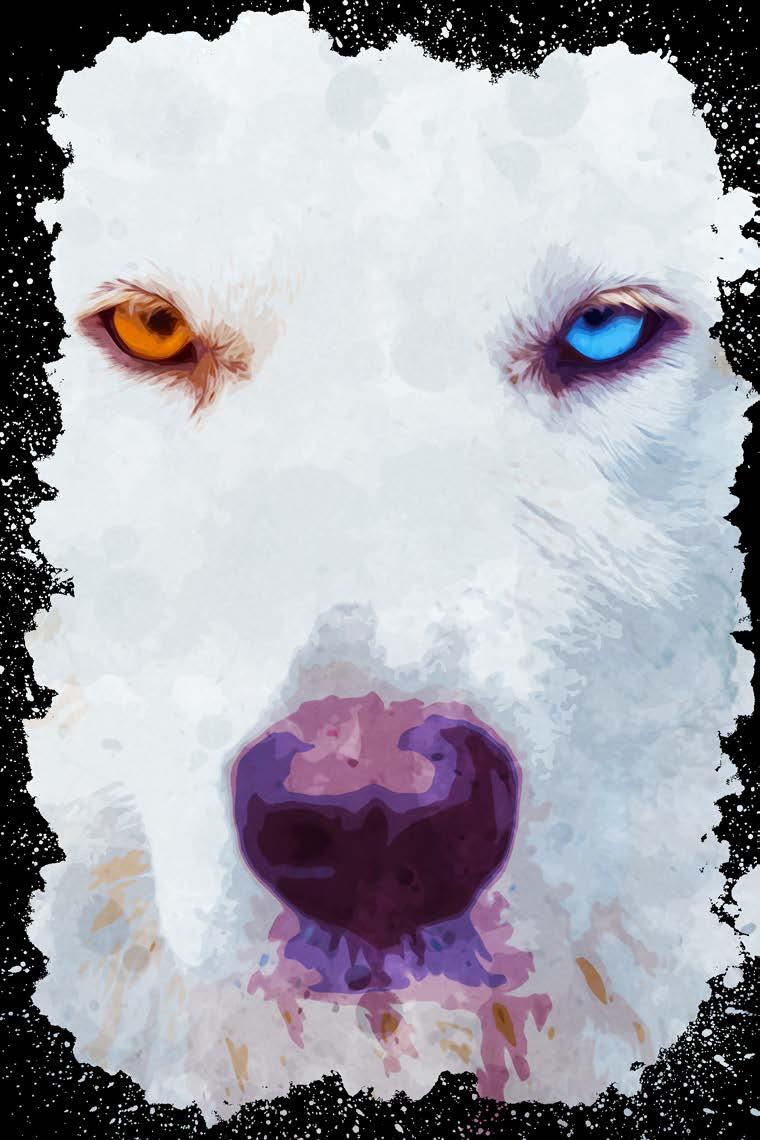
What if, The world wasn’t at war?
What if, We didn’t hate anymore?
What if, There wasn’t hate on this planet?
What if, Kindness was a habit?

What if, We learned to love?
What if, We didn’t have to be so tough?
What if, The world was a better place?

What if, We all finished in first place?
Embracing others through our differences Whether looks or preferences.
What if, We all learned to be loving and acceptive? And not liars and deceptive.
What if, Someday, there is a time, When being different isn’t a crime?
29
When I talk about my childhood, I am usually referring to ages 7 through 12. These were my favorite years. They were some of my most innocent times, not yet touched by the reality of what this world is really like. I could write about so many funny, exciting events that happened during that time in my life. Instead, I choose to write about the ending. But before I do, you must understand a little bit about the beginning too.
I grew up a military brat. Growing up, I hated that term; I still do. Moving around was part of the “job description,” you could say. We moved from an air force base in Aviano, Italy, to another base called Tyndall, near Panama City Beach, Florida. I do not remember anything about that particular move. Perhaps that’s why the next one was so difficult for me. I took it for granted that I could stay close to those beautiful beaches, the pure white sands and the stunning nature that surrounded me.
Tyndall was not only a military base, but also a nature preserve. My mom began homeschooling my sisters and I when I started second grade. In doing so, she gave us the wonderful experience of completing much of our schoolwork on the beach. This was something I missed as soon as we moved away. The beach was always my safe space where I could disconnect from life’s chaos whenever I walked along the shores. All of this was about to be ripped away from me with just one simple e-mail.
Something I have always hated about the military was that, at any second, they could, without warning, completely change your life. One day my mom sat my two younger sisters and me down in the kitchen. My middle sister sat on the counter, with my youngest sister and me on the floor side-by-side. I guess chairs were out of style for us kids at that age.
My mom said, “We are moving to Japan,” her words floating around the room for what seemed a long time after she’d uttered them. Of course we were all confused. I was about eleven at that time, making my sisters eight and six. To be honest, I didn’t know where Japan was, only that it was part of Asia. How could we be moving there? It seemed impossible, yet the inevitability was quite imminent.
The news took a few days to fully sink in, taking longer for me than my middle sister. One day not long after my mom’s announcement, I found her crying in our laundry room. Anger, confusion, and excitement flowed through my nervous system. The five stages of grief were about to make their rounds.

I remember begging my mom to let us stay, telling her we could live with her parents; Nana and Papa. Even then I guess I would still be moving away from Florida. Leaving behind my friends, and everything I had come to love including my amazing beach. I could feel my childhood slipping away from me, my younger self forced to accept the responsibilities of adulthood far sooner than I wanted to.
Fast forward a few months to February of 2014. Goodbyes had been said and so many tears had fallen they made the oceans seem shallow. I recall how huge the airport seemed. Some of our friends had dropped us off. They waved us goodbye as we ascended the escalators on our way to security. In that very moment, I remember feeling a little hope, maybe even joy. Moving is one thing, but moving to another country where you don’t speak the same language? That was a whole different story. In that instant, I realized there was nothing I could do to change my situation, and this is when I discovered the fifth and final stage of grief: acceptance.
The fourteen-hour long plane ride from Seattle, Washington, took a toll on both my body and mind. “What day was it?” “Where are we?” Questions like these flooded my head as I tried to look

30
out the window, but all I could see was a seemingly endless black ocean beneath me. Water that once brought me such peace now stirred up intense anxiety. My youngest sister experienced severe leg cramps and had to walk around the plane countless times before regaining any sort of comfort. I remember playing on my Nintendo DS system alongside my middle sister for a few hours before falling asleep. A flight attendant eventually came around with a hot dinner for us about halfway through our flight. I don’t remember exactly what it was, but I didn’t like what was served.
Clocks in Japan are about thirteen hours ahead of the US, which meant we experienced the same day twice. It happened to be Valentine’s Day. Upon arriving to Misawa, Japan, we were greeted by our sponsor, and by the coldest weather I had ever experienced. It turned out that we had arrived the day after one of the largest snowstorms Misawa had experienced in 20 years.
We saw snow piled three and four feet high, and the wind was still spitting flurries. My middle sister dared me to make a snow angel as we exited the plane, so I did, instantly regretting it when the snow stuck to my clothes leaving me damp and shivering with cold for the next two hours as we sat through a mandatory Culture Introduction Class. The course consisted of a driver’s license test for my parents, a brief introduction to Japanese language, and a brief example on how to read road signs to make your way back to the base if you were ever lost outside the city.
All of this was not only boring to twelve-year-old me, but the snow had melted on my clothes and the freezing water seeped through my clothing and onto my chilled skin. The place to where we’d been taken was not really a building, but more of a garage. There was no heating, and they left the door open as the snow fell faster.

Once the class ended, we were shown to our hotel room and told to get as much sleep as possible so our bodies could adjust to the time difference. My parents took this advice and immediately went to bed, while my sisters and I explored the hotel room and played in the snow on the balcony. Our poor dog, Moose, was sick from all the traveling and ended up revisiting his lunch a couple of times before falling asleep near my parent’s door. Eventually, my sisters and I fell asleep on the floor next to him.
Traveling around the world at an early age helped me experience diverse cultures while being fully immersed in them. I have lived in three different countries: Italy, the United States of America, and Japan. I have also visited Holland, Germany, and Austria. I also ended up in France by accident, but that is a story for another time. One thing that these experiences have taught me is to hold on to friendships, because one never know how long we’ll have someone in our lives, or how important to us they might turn out to be.
31
Silver Waves Under a Golden Sky
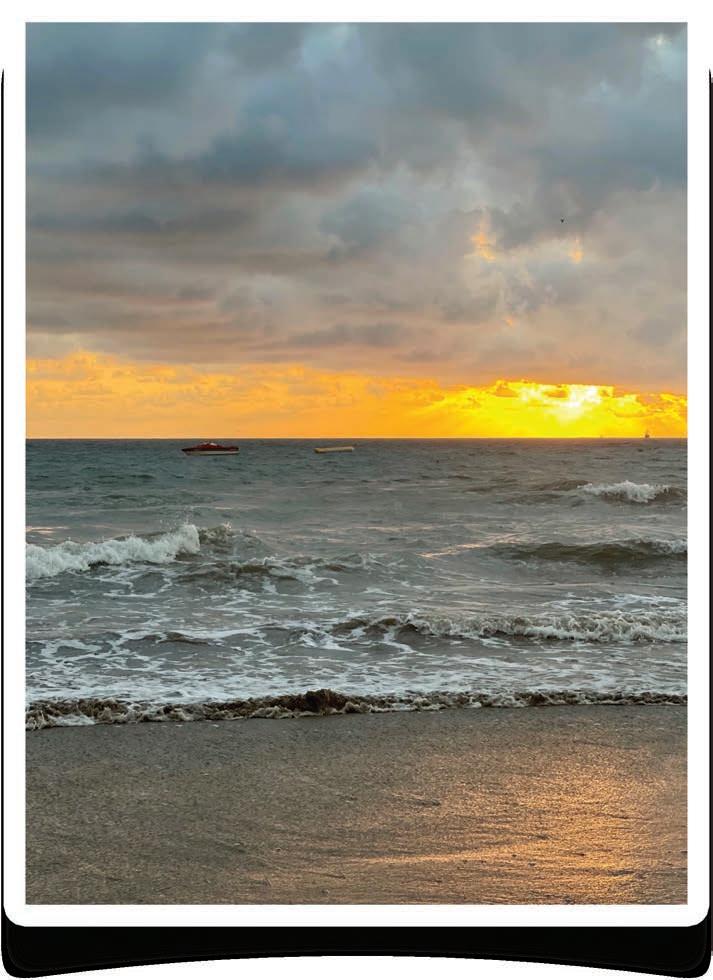
 by Kassandra Ciriza-Monreal
by Kassandra Ciriza-Monreal
STUDENT PHOTOGRAPHY WINNER 32


33
FACULTY/STAFF
PHOTOGRAPHY WINNER


34
Caley Anderson
Icelandic Turf Home
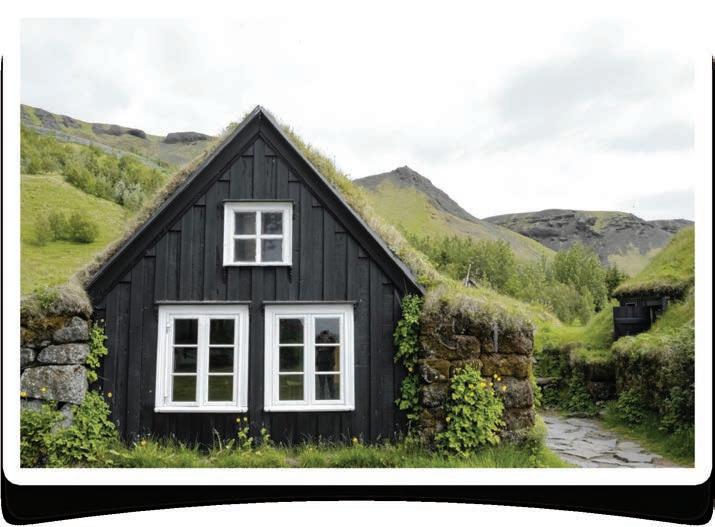
 by Caley Anderson
by Caley Anderson
With limited building materials, early Icelanders creatively constructed these homes with very little wood. A primitive wood frame, along with flat stones, turf, and soil composed these humble abodes. A product of a difficult climate, these highly insulated structures became Iceland’s first green buildings. Today, these historic structures are a symbol of the vigorous spirit of their early ancestors.
35
FindingFamilyMy
by Fred D. Watts, III
FACULTY/STAFF CREATIVE NONFICTION WINNER
In a genealogy presentation of October 2022, the presenter mentioned that about 53% of individuals know the names of all four of their grandparents and only 3% know the names of all eight great grandparents. That immediately reminded me of my ninth grade homeroom/math teacher, Mr. Johnson. He was visibly and physically amazed when I told him that I would be missing school to attend the funeral of my great grandfather. His comment to me was that he never knew his grandparents, let alone great grandparents.
My last and longest living great grandfather was born in 1865 and died in 1965. The minister commented that he was two months short of his 100th birthday. For purposes of the eulogy, he suggested that we all just round his age up to 100 years old. Decades later, I believe I found information suggesting that he was born in 1864. Some of his surviving grandchildren have admonished me for making this claim. Specifically, they say, “Grandpapa said he was never born a slave. Therefore, he was not born in 1864.” Dutifully, I don’t argue or contradict my elders. At least I don’t do it while they’re around. [Note to self: you’re
never too old to act like a child]
A little time passed. I earned some college degrees. I got married. My wife’s childhood priest, who eventually became the Episcopal Bishop of Washington, DC, gave us a Bible as a wedding gift. It was a very large Bible. There were places saved for documenting family members and special events. There was a section for children and grandchildren’s names and their birth information. There were also spaces for parents, grandparents, and great grandparents.
I could not leave those pages blank. But I wished to include information about my ancestors and my wife’s ancestors as well, their names and dates. I felt compelled to fill in the spaces in that Bible, my thoughts being that, a century from now some of my descendants, or descendants of close cousins, would be interested in that data.


My maternal grandmother was the youngest of my great grandfather’s children. She was the first to die in adulthood. There were two infant deaths of her siblings: her oldest brother was a fraternal twin and his twin sister died as an infant in the 1890s. Likewise, my grandmother was also a twin, and her brother died in infancy.
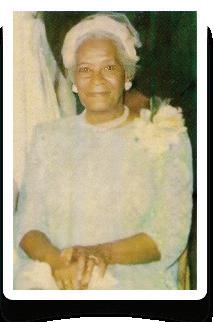
Since I could not ask my grandmother about her ancestors, I asked other relatives for information. They all directed me to Aunt Lex. Aunt Lex was born in 1895 and was the eldest daughter in her family. I knew my aunt as a gardener. My parents would periodically take us to visit with Aunt Lex and her husband, Charlie. Charlie was not much of a talker. The exception was when he brought out souvenirs from his time in the Army during World War I: a sword, and a German soldier’s pickelhaube helmet, complete with spike on top.
Today, people pay to see such a marvel as Aunt Lex’s garden. She and Uncle Charlie owned two lots. The house took up one, and the flower garden the other. From the sidewalk to the alley, every inch of space was filled with her beautiful
36
flowers. The plant life was meticulously laid out. Each row of slightly taller than the previous one. The shortest vegetation grew near the sidewalk, while the tallest, such as Aunt Lex’s lovely sunflowers, were nearer the alley. All the plants seemed either to salute people walking by or lowered themselves allowing insects to feed and play in their blossoms.
By the time I asked questions about my family heritage, Aunt Lex was in her 80s. I wasn’t the little boy she once knew. I didn’t live in the city anymore, nor did she live in her old house. With such weighty queries, she would have preferred an in-person visit from me, but she did answer my questions with an eight page, handwritten letter.
The information in that letter has been invaluable with respect to my hobby of genealogical research. She wrote about her grandparents. She related stories she’d received from her aunt, and she expanded my understanding of my cousins, who they were, or might have been.


One of the most precious portions of that letter was about her paternal grandfather who had been enslaved in Virginia. He had a family in Virginia; a wife, three sons: Thomas, John, and William, and two daughters: Judith and Fannie. He was sold to someone in Alabama, and his sons sold to another in Mississippi. I have yet to find documentation associated with the two sons, but I did discover that one of the daughters had reconnected with her father in the 1870s. This intelligence came from an entry in the records from the Freedmen’s Bank. My great great grandfather had opened an account for my great grandfather and Fannie, his older half-sister. That document was the source of my claim that my great grandfather was born in 1864. Aunt Lex also provided the name of her biological paternal grandmother, Amy. Amy had two children before meeting my great great grandfather. Including my great grandfather, Amy had four more children. However, my great grandfather did not have any whole siblings.
Cross-referring to this information provided by Aunt Lex along with an examination of my family’s DNA, I also managed to identify third and fourth cousins. They were descendants of Amy’s first and second families. I would never have known how these individuals were related to me without Aunt Lex’s remarkable document.
I’ve challenged myself to become the Twenty-first century version of Aunt Lex. I enjoy and look forward to the family research questions that might come from close and distant relatives. We are all trying to make lasting connections. Those truly serious researchers in the family understand how we are related to each other and, more importantly, how, in turn, we are related to everyone. We may eventually find fourth, fifth, or even sixth cousins. And, sooner or later, we could even find out how we are related to you.
37
by Dorothy Hans


Like many love affairs, this one started in a dark and cozy pub. Unlike many love affairs, this one is still alive and well 22 years later. The first time I ever ate a mince pie I was somewhere in the south of England about to attend a ball with my boyfriend at the time. We had taken the train from Glasgow to London, hopped in the car with some of his friends, driven a few hours past Stonehenge, arrived at our destination (where I promptly changed into my gown in the toilets), and left the venue for the pub across the street before eventually heading back. There, in that crowded and overly warm pub, I had my first mince pie. There was a plate of them. Fancily stacked on a tiered tray actually. Right next to a vat of mulled wine. Free for the taking.
It was, in fact, the second time I had been presented with an abundance of these little pies. The weekend before the same boyfriend’s flatmates were having a mulled wine and mince pie party. I watched as bottle after bottle of wine was poured into a pot on the stove, and more and more people crowded inside. All of them seemed to be nibbling away on these pies that were easily held in their hand—something they claimed to be delicious. At that point in time, all I wanted at a party were chips and salsa. I was still American, after all. And, like many young Americans, I had never had a mince pie and I had no desire to have one because the name “mincemeat” really made me think there would be ground beef in it. I couldn’t quite get over that idea no matter how many times someone tried to convince me otherwise. I had eaten haggis, and blood pudding might have touched my tongue, but mixing meat and sweets seemed to cross some kind of line.
I avoided mince pies at that party, more than likely finding myself getting chips and cheese later that night, but on this dark December night, somewhere near the coast in the south of England, I couldn’t remember the last time I had eaten anything and I didn’t know when the next time would be. And there, sitting on the bar, were free mince pies. That’s what the sign said anyway. Everyone was entitled to a mug of mulled wine and a mince pie. Something to do with the ball we were about to attend. I dug in, beef fears aside. I don’t know if at that moment I really enjoyed it, but I do know that what I found had not a speck of meat in it, but a mouthful of warm spiced fruit. I was enchanted.
I must have gushed about it to my parents because when I arrived home the week after my mom returned from one of her many Christmas shopping expeditions with a jar of mincemeat. The next December another one appeared. And thus began our mini-mince pie tradition. There were very few takers on our mince pies. My father. My aunt. An odd friend or two, usually with some connection to Britain. Once our dog ate six of them when they were accidentally left on a table he could reach. He sat in his crate that night looking at us like we were monsters for making him eat them.
A few years ago, I was lucky enough to be back in Scotland visiting friends in the days before Christmas. We spent a night at my friend Karen’s and right after picking up her
38
little boys from school we came in and we all had a mince pie and a cuppa. My daughter wasn’t impressed, which was hilarious because the two little ones were well into it. Nuala just “didn’t care for it,” she said. After wandering around Edinburgh’s Old Town another day, we met up with my friend Helen and her son in a cafe. The mulled wine and mince pie were the special and so I indulged. It was like coming home.
December 2019 was the first year since 1999 that I didn’t make my own mince pies. There was no mince to be found in any of the grocery stores. Finally, I found my way to the Scottish Gourmet Food Company that’s hidden away in Greensboro. It’s a mail order business, but if you pop by they have a little room set up like a gift shop. It’s darling. I walked in and scooped a box of pre-made ones off the shelf—the last one I could see—so it could finally be Christmas. The next year I found mince early. A gift from the pandemic gods. Every once in a while after a particularly hard day of working from home, I would take it off the shelf and stare at it moonily.
Making mince pies was my first grown up new Christmas tradition, so it only makes sense that it would continually evolve. Twenty or more years after eating my first one, December now finds me making my own pastry and my own mincemeat. Mincemeat pies let me bring a piece of the place where I always feel so at home to wherever my home actually is. It’s funny what you hold onto over the years. I don’t think I ever thought a mince pie would be one of those things, but it is and I don’t mind a bit. They take me home; they make it home.

39
Pastry Ingredients:
Don’t have time to make pastry? Use store bought. I did for years.
- 150 grams, plain flour, plus extra for dusting and rolling
- Pinch of sea salt
- 85 grams, cold unsalted butter cut into cubes
- 1 tsp sugar
Mincemeat Ingredients:
- 500 grams dried fruit (mostly raisins, some craisins, currants if you can find them)
- 3 apples, peeled and diced (Granny Smith works well)
- 150 grams of mixed peel, diced (Don’t know what this is? Find it on Amazon or make your own at home.)
- Zest of 1 orange and 1 lemon
- Juice of ½ lemon
- 3 tsp each of: ground cloves, nutmeg and cinnamon
- 150 grams dark brown sugar
- 125 ml of Earl Grey Tea that you’ve steeped and let cool. Often recipes use brandy here, but this adds a nice amount of flavor.
The Mini-Mincemeat Pies:
*Yield: It depends…it depends*
Ingredients:
- Pastry
- Mincemeat

- Icing/confectioner’s sugar for dusting
- Egg, beaten
*The yield really depends on what you’re using for pastry. This pastry recipe will yield about 24 minimince pies. I often double the pastry recipe and make as many as I can. When I’ve used Pillsbury or store brand refrigerated pastry crust, I just sort of play it by eye. My best advice is to start small at first and then work your way up to 100s of minimincemeat pies at a time. You won’t regret it. *
Preparation:
- Rub the flour, salt, butter, sugar together in a large bowl until it’s all blended together
- Stir in a few splashes of cold water until the mixture is combined to a dough.
- Wrap the dough in saran wrap and pop in fridge for an hour or the freezer for 30 minutes before using.
Preparation:
- Put it all in a big bowl and stir until well mixed.
- Let it sit for a day or two to let the flavors soak in.
You’re going to have an abundance of mince. Like a whole lot of mincemeat to make this recipe on repeat the whole month of December.
Preparation:
- Preheat oven to 400F.
- Roll out dough and cut out circles to line mini-muffin tins. A coffee cup usually works well for size. Make sure you save scraps and re-roll.
- Fill each little pastry lined mini-muffin pit with mincemeat so it comes just barely to the top. Don’t overfill; it will get messy. Don’t underfill; you’ll have a sad wee pie.
- Top each pie with a star you have cut out of the leftover dough.
- Brush the stars with beaten egg.
- Bake for 15-20 minutes until golden.
- Remove from oven to let cool completely.
- Dust with confectioner’s sugar.
- Eat one every day for the whole month of December.
40
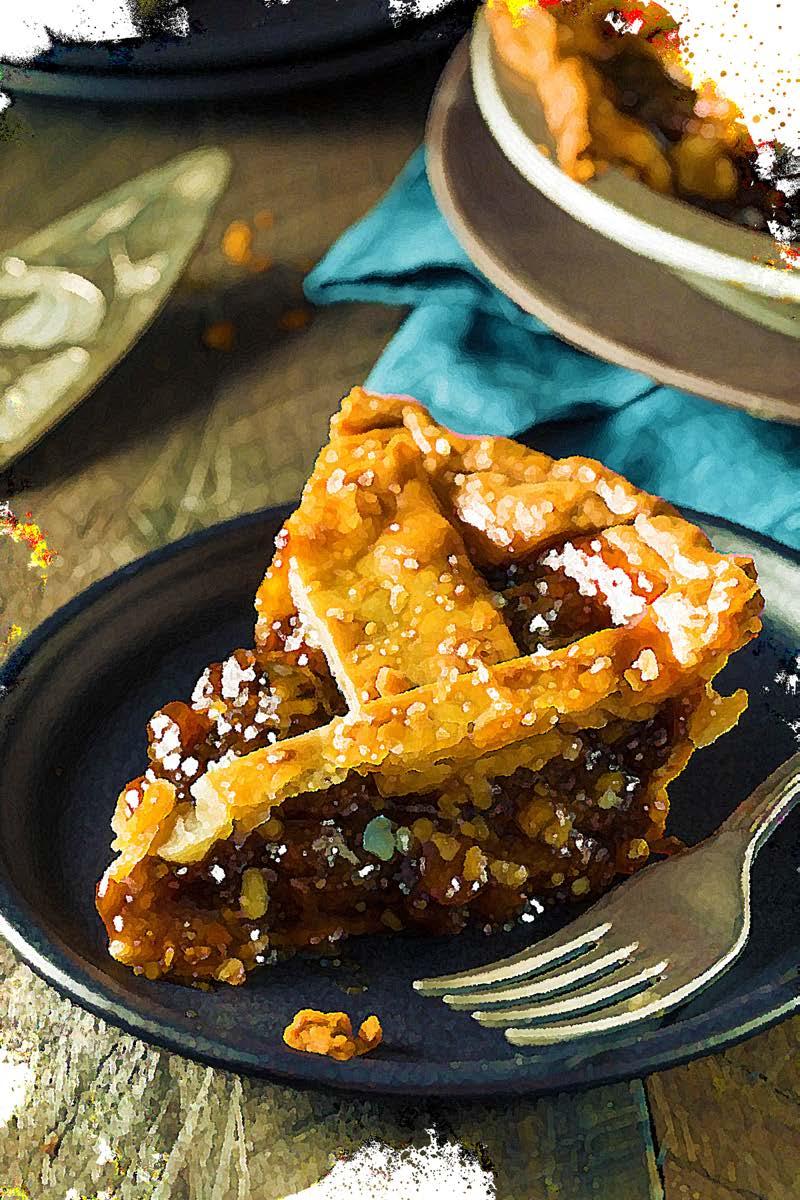
41
Marn-Marn’s Snowba s & Crescents
 by Dorothy Hans
by Dorothy Hans
Every day after school, Peggy Tully’s mom would drop me off at a red brick apartment building nestled in between two other red brick apartment buildings. A little set of sturdy triplets housing the lives of the often insignificant. The woman in the wheelchair. The boy who couldn’t hear. A suddenly childless couple. The radiator’s hiss, the soundtrack to their lives.
Pushing open their unlocked door, the same scene greeted me every afternoon. Uncle Artie sitting in his recliner watching Bob Ross while my great aunt, MarnMarn, sat at the table with my great-grandmother, another Dorothy. They swirl the rocks in their scotch and talk about people I know, but only in the vague way that children know adults. The mother and daughter don’t seem to care whether or not they have created an atmosphere conducive for doing my homework.
Years later, I realize that this moment is such a part of who I am that I re-create it with my own mother who comes over for dinner once a week. My daughter sits at the coffee table doing her homework while my mother and I give each other reports on the day. We are like the other women in our family, only we drink tea instead of whisky, a sensible choice for parents and those who need to drive. My daughter comes from a quieter life tradition. We live in the suburban south and she is not always used to loud people, but my mother’s weekly visits are like downing shots of Queens.
I never remember Marn-Marn being able to walk easily by herself. Her body was slowly shut down by multiple sclerosis. She moved around the apartment like a toddler learning to walk, using what was around her to propel her steps, until it was a cane, then a walker, then a wheelchair. When I arrived after school, despite her physical limitations, she always made sure I had a snack. Moving her way into the kitchen as if the floor was hot lava, she would come out with some kind of sandwich—tuna, peanut butter and jelly, cheese—always on a toasted English muffin. Once I ate that, she’d pour me a glass of milk and give me the go ahead for a treat. Almost always, that treat would be a cookie from a package of Pecan Sandies or a slice from an Entenmann’s Crumb Cake, both favorites of Uncle Artie’s. However, in the early days of December, blue butter cookie tins filled with homemade cookies replaced their store bought rivals. Eagerly, I’d open them to a swirl of powdered sugar to find her stash of snowballs and crescents which, magically, never ran out. I never saw her make them. I never knew if she had help doing so. I just knew they were something I could rely on. A little universe of wonder in each bite.
There are few things more comforting than recipes given and gifted by those before us. Time passes. Traditions change. We take the acts of love they made in their own kitchens and reimagine them in our own ways, never letting their love or their light die out.
42
FACULTY/STAFF RECIPE WINNER
Snowballs Ingredients:

- 1 cup butter, room temperature
- ½ cup confectioner’s sugar, plus more “ for rolling
- 1 tsp vanilla
- 2 ¼ cups sifted flour
- ½ tsp salt
- ¾ cup finely chopped nuts (walnuts or pecans preferred, but you do what you like)
Preparation:
- Heat oven to 350F.
- Line cookie sheets with parchment paper.
- Cream butter, sugar, and vanilla.
- Sift flour; mix in salt.
- Stir sifted flour and salt into butter mixture.
- Mix in nuts.
- Using a tbsp measure, scoop out the dough and roll into balls.
- Bake for 14-17 minutes (or until just right).
- Allow to cool.
- Roll in more confectioner’s sugar.
Crescents Ingredients:
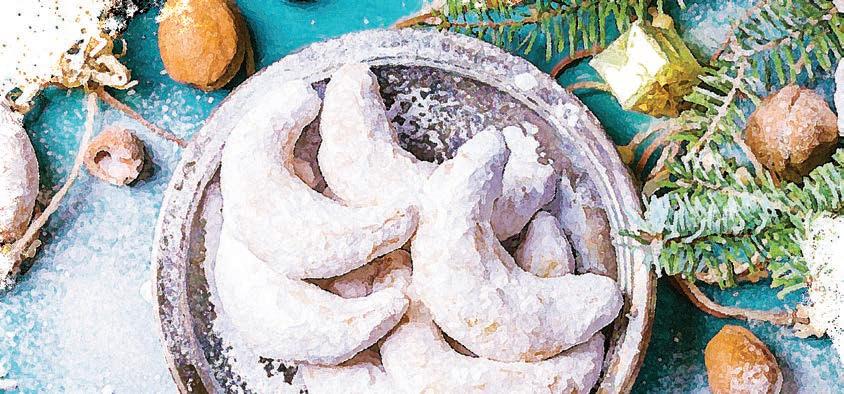
- 1 cup butter, room temperature
- ½ cup confectioner’s sugar, plus more for dusting
- 2 tsp vanilla
- 1 cup rolled oats
- 2 cups sifted flour
- ½ tsp salt
Preparation:
- Heat oven to 350F.
- Line cookie sheets with parchment paper.
- Cream butter, sugar, and vanilla.
- In a separate bowl, mix together oats, flour, and salt.
- Fold dry ingredients into wet ingredients.
- Using a tbsp measure, scoop out dough and shape into crescents.
- Bake on parchment paper 15-20 minutes (or until just right).
- Dust with more confectioner’s sugar if you desire (you really should).

43
When I Say We
 by Pamela Burleson
by Pamela Burleson

We were born 1 year and 5 months apart, from June 11, 1977, to November 12, 1978.
We were as different as two Sisters could be, one with light hair and eyes, one with dark. We were friends from the beginning, and she was not a minute too early or a minute too late.
We were different, from my straight hair and big smile, to her curls and cute smirk.
We rode bikes with our friends in the back alley just big enough for one car. We watched The Smurfs on Saturdays and went to church on Sunday. We had one crazy canine sibling, Spice, who loved to jump over the cord of our Atari. We learned the importance of family and love, about God and why we pray. We realized then we were lucky to have a Sister each and every day.
She called me over one winter day to share a secret with me. She said, “I have noticed presents high up in Mom and Dad’s closet.” Christmastime festivities were fast approaching, you see. But when I say she, it was really we who were both in a sneaky mindset.
Daddy worked all night in the coal mines in the West Virginia mountains. Mommy was our teacher, the homemaker, cake baker, and decorator. She would make us beautiful matching dresses, sew blankets and even curtains. He would bring us unique candies that he picked up after long hours of hard labor.
We Sisters had very different personalities, but we always had each other’s backs. We were not in the same grade at high school and did not have the same friends. But if anyone were to mess with either of us, well, that person might just get bushwhacked!
44 FACULTY/STAFF POETRY WINNER
We were lucky to have a Sister, a Sister until the end. I never thought I would lose you, especially not so young. I had it figured I would be the first to leave this world, since I was the older one. Now I see that life can be unfair and unexpected, to anyone, or everyone.
Now when I say we, I have faith that we will meet again. So many people loved you dearly and share our grief, our pain. Just as you did, I find myself wanting to be more generous, wanting to show love even more. You have me planting more flowers and decorating for the holidays, even more than before.
I will honor you, Sissy, And your story, your love, your grace, and your beauty will remain. And when I say we, I am convinced, one sweet day, we will meet again.
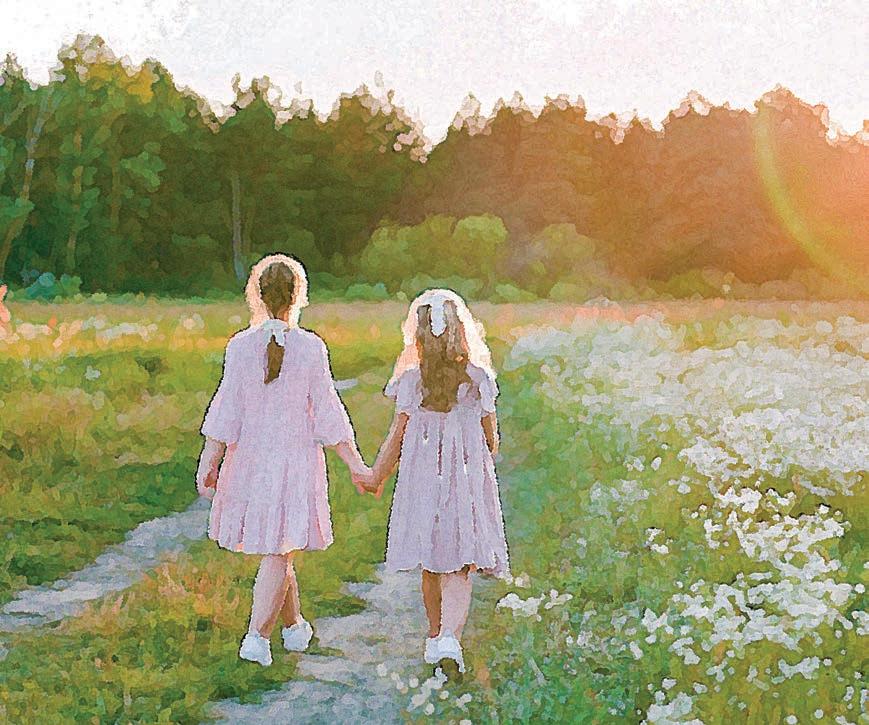

45
Homes Away from Home: A Definition
 by C. C. von Werklaäg - translated by Dr. G. Warlock Vance
by C. C. von Werklaäg - translated by Dr. G. Warlock Vance
Throughout my literary career, I have detailed my experiences of growing up in Iceland, and about returning there after many years in North America. My relationship with my motherland has been bittersweet—the wonderful sense of nostalgia tempered by the suspicions of friends and relatives who continually view me as the utanaðkomandi (pronounced “oot-ann-ath-co-man-dee”) or outsider. I honestly cannot blame them for casting a leery eye on an individual like me, a person who has become a wayward soul, one who has strayed too far from the fold. Although I understand the reason for their trepidation, it does little to curb the sensation of loss, and of being lost, which I carry around in my heart.

Pliny the Elder is credited with first having said “Home is where the heart is,” and yet, the more places I visit or cities in which I dwell, the greater I sense the profundity of not belonging. Although the people in various areas of North America have been exceedingly accommodating (particularly in Canada), I never seem to acquire that kind of assured calm I see in others, the one that says, “I live here, and I am one with all and everything.”
The coping mechanism that serves me best for my nomadic existence is a simple mantra that is one part Shinto prayer, and one part Jungian psychology; Wisdom brings illumination and with it, the feeling of synchronicity. No matter how far I travel or where I go, I search for the truth in the world, and in myself. While I’ve never felt that I truly belong anywhere in particular, inevitably I find that I am somehow connected to all of the places and the people I encounter—most often in ways I could not have anticipated until I arrive, mingle, and get to know something of their language and culture.
To understand how this spiritual mechanism operates in my life, I draw upon one of my latest adventures—a trek through the highlands of Bolivia to investigate the ruins at Puma Punku. Sojourning around the globe as I have, I’ve managed to adapt to a great many cultural extremes and to come to terms with the fact that some aspects of dayto-day existence simply do not translate from one society to another. I may have little difficulty ordering food or inquiring directions in English, German, French, Icelandic, or Japanese, but I thought I’d met my match when I tried to inform a Chilean doctor that I’d broken my big toe. There is no word for “toe” in Spanish; rather, such digits are considered the “fingers of the feet.” Once I figured out how to say “dedo gordo del pie,” I was patched up and hobbling my way across the border.
46
When I arrived in Tiahuanaco and met the guide who was scheduled to take me to Puma Punku, he looked at my swollen foot and pale face and wrote me off as “este blanco guevon!” (a white fool is perhaps the most charitable way to state what he said). I shook my head, exclaiming “No soy Norteamericano. Soy Islandés!” The man waved a hand in the universal gesture of “Bah! Leave me alone!” as he strode away trailing a cloud of thin smoke from his cigarrillo. I stood there for several moments with a punishing sun hammering down on my head, staring after him as he vanished inside what I assumed must be the cool depths of a shady taberna. I wondered not only how I would fulfill my mission, but where I could find a place to stay for the night as I’d not called ahead to make arrangements.

With no one to show me the way, and little chance of finding the ruins of Puma Punku on my own, I was at a loss as to how best to continue my quest, but just then a man appeared from the cavernous dark of the post office. Stepping out into the nearly blinding sunlight, the slim fellow wore a light cotton shirt and tan trousers. He approached me with a friendly wave.
“¿Como esta?”
The fellow’s accent was quite different than that of my Mexican friends from whom I’d learned the bulk of my español, but it didn’t take long to catch the lilt of his words. He introduced himself as Jóse Gris and acknowledged that the tour guide had it in for Americans and hadn’t believed me when I’d told him where I was from.
“¿Es usted de Islandia? ¿De verdad?” asked Señor Gris, inquiring if I was really from Iceland. I nodded, clasped his hand in mine, and said “Gaman að hitta þig”— Nice to meet you.
Gris seemed charmed by my strange words. He said that he could tell from the moment he saw me standing in the dusty street that I was a “viajero” or traveler and that my search was for more than pretty scenery. “You seek the truth in all things.”
I hadn’t a clue as to how this man whom I’d only just met could see so deeply into my character, but in less than an hour we were fast friends. He invited me to dine with him and took me to his home to meet his wife and children. He said that I was welcome to stay with them and that, the next day, we could make an early start and he would gladly take me where I wished to go.
One so often hears about the dangers of traveling in “foreign” countries, but almost every country is foreign to me so I try my best to take sensible precautions while keeping an open mind to the fact that there are good and bad people no matter where one goes. I sensed no ill will from this man and, once I’d met his family, I came to see that the concept of “home” was not where one’s heart dwelled, but where one was made welcome by others. Señora Gris and her children asked many questions, yet they treated me as if I was one of them; a compañero, a friend.
Puma Punku was an incredible sight (a tale best told some other time), but equally important was the realization that one acquires wisdom in the doing, and a sense of unity with the knowledge that we are all joined to the world in the same manner—with feet on the ground and arms reaching toward our goals. All of us endeavor to communicate these aspirations, to share in the experience, and to build individuals into families. This is the true meaning of “home,” no matter the locale or in which language it is said.
FIN 47
NOTE FROM THE EDITORS: Thank you all for your contributions to the Uwharrie Dreams Spring 2023 “When I Say We” issue. We appreciate all of the hard work everyone put into their submissions. Thank you also to Sylvan Allen and the Diversity, Equity and Inclusion Committee, the team in the Office of College Marketing (Kris Julian, Megan Crotty, and Sabrina Garner), Shane Bryson, the Office of Student Life, and the RCC Student Government Association for helping to keep our club afloat. We wish you all the very best with your future literary efforts and hope to see more from you in the near future. Look to the Uwharrie Dreams Moodle page for information about upcoming events.

Stories of Family, Culture, & Traditions
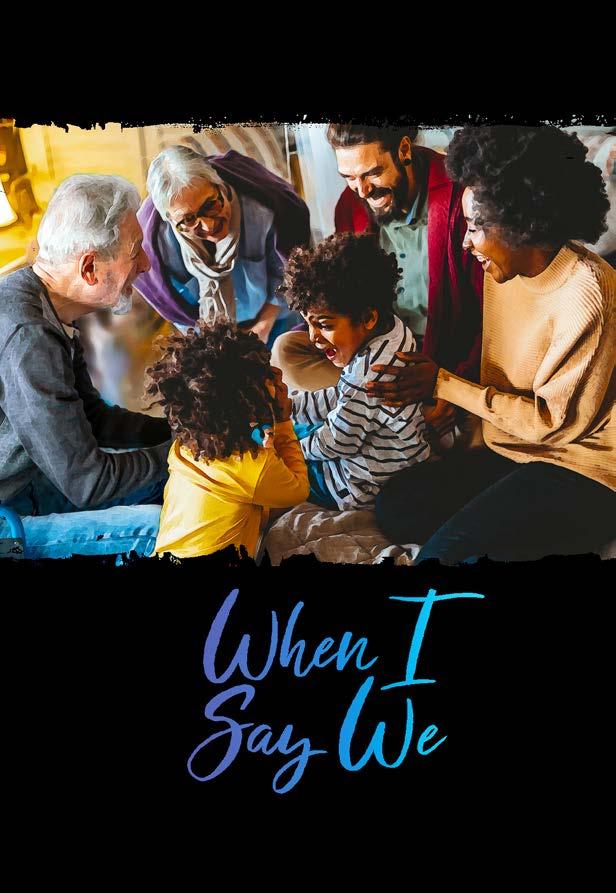
48
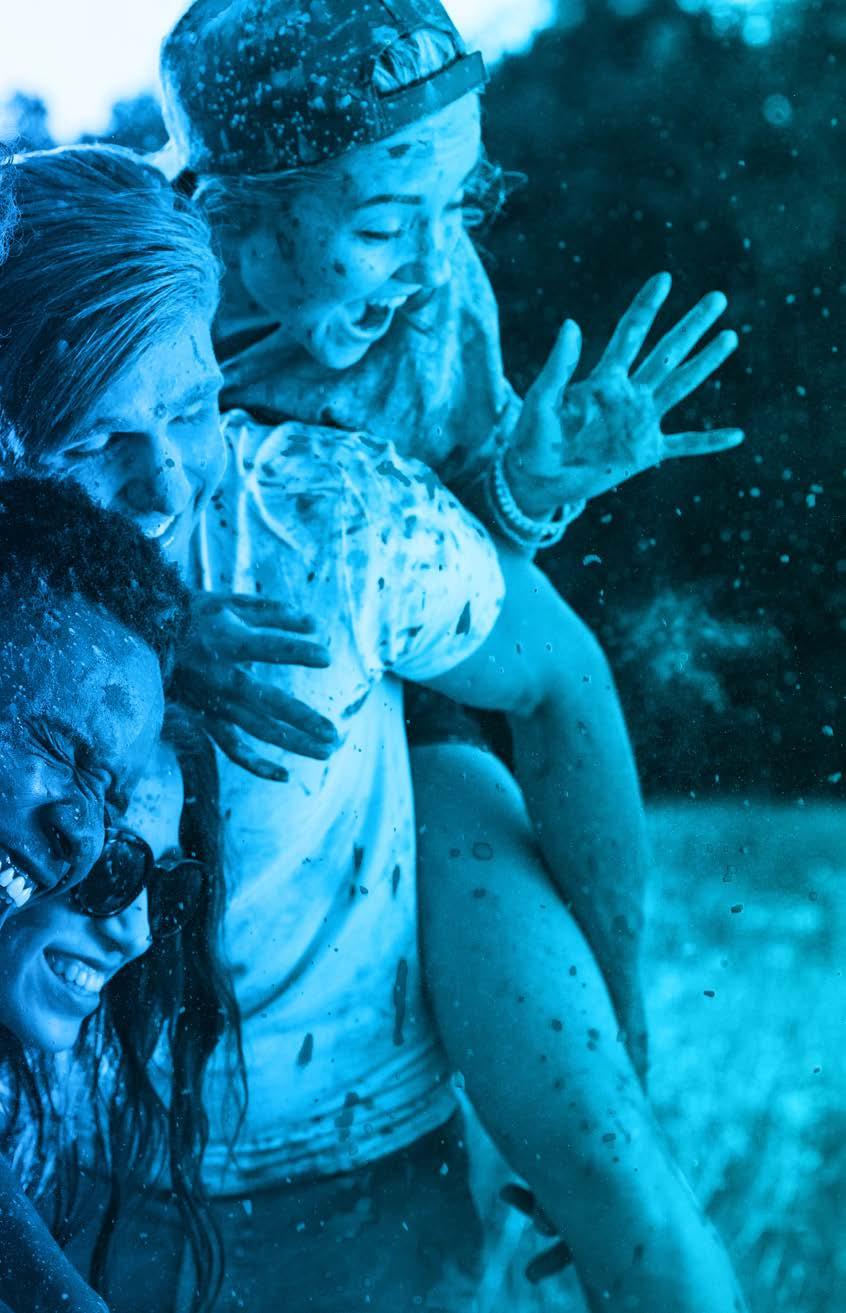

Stories of Family, Culture, & Traditions
www.randolph.edu/campus-life/uwharrie-dreams.aspx













 by Alisha Khawaja
by Alisha Khawaja





 by Kassandra Ciriza-Monreal
by Kassandra Ciriza-Monreal












































 by C. C. von Werklaäg - translated by Dr. G. Warlock Vance
by C. C. von Werklaäg - translated by Dr. G. Warlock Vance


